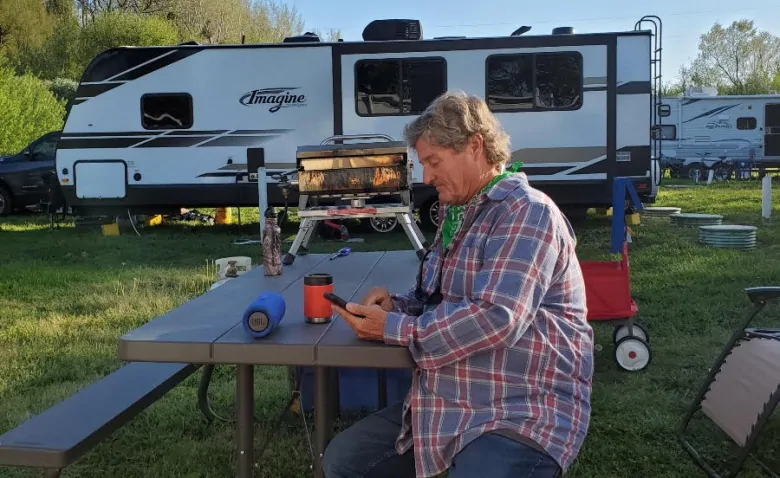Canada loosened its border rules to allow immediate family to enter the country. But many cross-border couples have discovered their relationship doesn’t qualify, including Stephen Barkey and Cathy Kolsch, who live in an RV.

Canadian Stephen Barkey and American Cathy Kolsch say they’re devastated after being forced apart when they tried to cross the Canada-U.S. border on Monday.
“We don’t know when we’re going to be reunited,” said Barkey, a 65-year-old retired sales rep. “It feels like my whole life has been ripped apart.”
The couple, who had been living together in the U.S., tried to cross the border from North Dakota into Saskatchewan after Canada loosened its travel restrictions to allow immediate family to enter the country. But Kolsch was denied entry to Canada because the couple wasn’t able to prove she is Barkey’s common-law partner.
When they turned back to re-enter the U.S., Barkey was then denied entry because the U.S. land border is now closed to Canadian visitors. Consequently, the couple was forced to separate and return to their respective countries.
“We were screaming and sobbing and pleading,” said Kolsch, a 61-year-old retired paramedic. “It’s inhumane what happened to us.”
Barkey and Kolsch are one of many cross-border couples separated during the pandemic. To help stop the spread of the coronavirus, Canada currently prohibits foreigners from entering the country for non-essential travel.
The federal government loosened the rules on June 8 to allow foreigners to visit immediate family in Canada — including spouses and common-law partners. However, many cross-border couples have been dismayed to discover that their relationship doesn’t qualify.
“We are together. We are common-law,” Kolsch said.

To qualify as common-law, unmarried couples must prove that they’ve lived together for at least one year.
Barkey and Kolsch said they have lived together for a year-and-a-half in their recreational vehicle (RV), mainly splitting their time between Barrie, Ont. and California.
When the pandemic hit and the Canada-U.S. land border closed to non-essential traffic, Barkey stayed in the U.S. with Kolsch. But after the Canadian government revised its t

